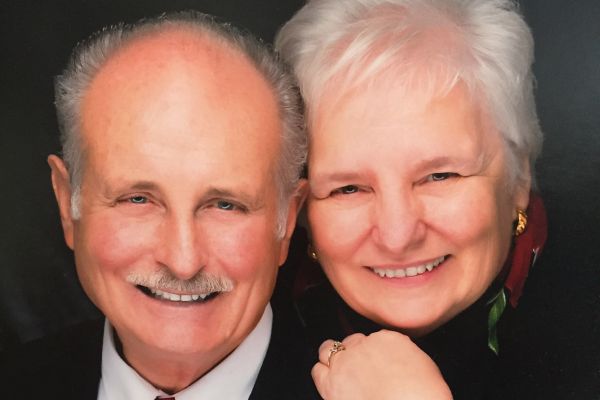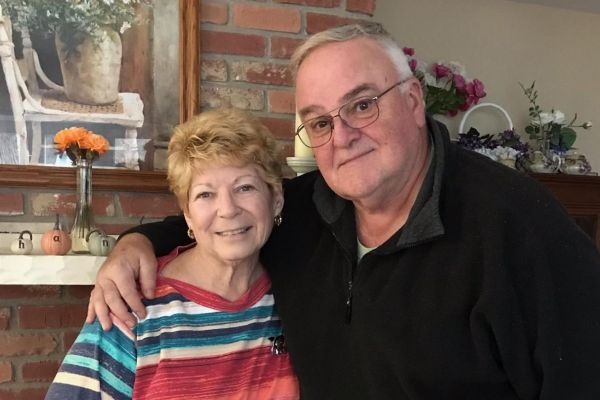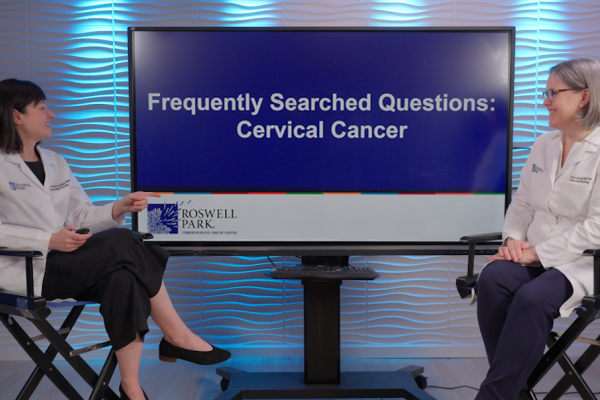After more than a decade with Roswell Park, Peter Frederick, MD, FACOG, Clinical Chief of Gynecology and a gynecologic oncologist, understands why a patient would be afraid after first learning that they might have cancer. “The next decisions you make can truly be life-altering,” he says. “So before you make any major decisions regarding your cancer diagnosis and treatment, it is usually a good idea to seek a second opinion."
In fact, most good doctors welcome second opinions. A second opinion can confirm or reverse a previous diagnosis. It can give patients confidence in their current treatment plan or it can present patients with additional treatment options.
“Before you begin treatment, you should feel good knowing that you have done your due diligence, you are confident that you have received the correct diagnosis, and you are comfortable with your medical team and your treatment plan,” says Dr. Frederick.
Double-Checking the Diagnosis
A key part of any second opinion is to verify the diagnosis. Unfortunately, some gynecologic cancers are not easily detected or diagnosed. While the Pap and HPV tests are very effective at screening for early cervical cancer, a reliable, routine early-detection test for ovarian, fallopian tube or primary peritoneal cancer does not yet exist. (Learn more about Roswell Park’s efforts to develop an ovarian cancer early-detection test.)
“So, for example, we’ve had patients come to our gynecologic clinic who’d previously been told they had hernias, kidney stones, disc problems and other issues, when in fact, they had ovarian cancer,” says Dr. Frederick. Vulvar cancer is another example; it’s sometimes initially misdiagnosed as an infection or abscess. In addition, a definitive diagnosis of cancer cannot be made until tissue samples are analyzed by a pathologist.
Question 1. What is the expertise of those who will examine and interpret your test and biopsy results?
“At Roswell Park, we have a team of pathologists who specialize in interpreting gynecologic biopsies,” says Dr. Frederick. “We routinely review biopsy results from other facilities to either confirm or reassess a diagnosis.” Indeed, in one study co-authored by Dr. Frederick, Roswell Park’s gynecologic pathologists reviewed cell samples from 246 Pap tests — used to screen for cervical cancer — from other labs. “While we agreed with 67% of the initial conclusions, our experts came to different conclusions for 33% of the samples, and half of those were clinically significant.”
In general, in 11 to 18% of all secondary reviews performed by Roswell Park’s Pathology Department (including all disease sites), the diagnosis is changed.
Reviewing the Treatment Plan
A second opinion will also assess whether the prescribed treatment plan is the best way to treat your cancer. You should ask whether your plan follows evidence-based treatment guidelines (if available for your type of cancer). For example, the National Comprehensive Cancer Network (NCCN) regularly releases and updates treatment guidelines endorsed by the leading cancer centers in the United States for over 50 of the most common cancers. If your plan varies from the guidelines, you should ask why.
Question 2. Do the physicians providing the second opinion have any extra training, high-volume experience or specialized clinical skills?
“All attending physicians on our gynecologic cancer team are board-certified or board-eligible gynecologic oncologists who have completed additional years of subspecialty training in GYN-specific oncology. This extra training and experience are important. For example, multiple studies show that patients have more thorough and accurate staging surgery and better survival rates when they receive ovarian cancer surgery from gynecologic oncologists rather than from surgeons who do not specialize in gynecologic cancer,” says Dr. Frederick.
All of Roswell Park’s gynecologic oncologists have high-volume surgical experience in laparoscopic, robot-assisted and complex gynecologic surgery, including debulking surgery to remove all visible tumors. “Roswell Park surgeons consistently rank among the leading surgeons in the nation for debulking surgery, achieving a 75% or better optimal debulking rate. Additionally, complication rates are lowest in patients who receive their surgery from high-volume surgeons operating at high-volume hospitals,” says Dr. Frederick.
“And, when planning treatment for our patients, our gynecologic surgeons and other oncologists (such as radiation oncologists) meet regularly and work together on a multidisciplinary tumor board, to review and discuss the best treatment options for our patients, essentially providing second opinions for each other,” says Dr. Frederick.
Question 3. Are there other treatment options that I might not know of already?
As a National Cancer Institute (NCI)-designated comprehensive cancer center, Roswell Park takes part in cancer research and clinical trials that lead to new cancer therapies.
A comprehensive cancer center like Roswell Park can offer extensive gynecologic cancer treatment and options not available at many smaller facilities, including:
- Immunotherapy options, such as the latest cellular therapies, vaccines and immune checkpoint inhibitors, including many available only through a clinical trial.
- Regional chemotherapy approaches, where high doses of chemotherapy are delivered directly to the abdomen to destroy any lingering cancer cells. HIPEC treatment may benefit patients with ovarian or fallopian tube cancers that have spread, or patients with primary peritoneal cancer.
- Personalized medicine, based on advanced genomic testing and immune analysis of each tumor to determine which targeted therapies and immunotherapies can offer the best response for each patient.
Arranging for a Second Opinion
In many cases, the cost of receiving a second opinion is covered by insurance, and some insurance companies require patients to receive a second opinion. You do not need a doctor’s referral to obtain a second opinion at Roswell Park.
“We have an excellent screening process to help us match patients with the appropriate clinic,” says Dr. Frederick. However, telling your current doctor that you’d like a second opinion can make it easier for the consulting physician to discuss your condition with your doctor and obtain additional information that may be needed.
To begin the process of obtaining a second opinion at Roswell Park, complete our online request form or call 1-800-ROSWELL (1-800-767-9355) to schedule an appointment.
Once we receive your request, a referral specialist will contact you within one business day to gather more detailed information. At Roswell Park, most patients who need a second opinion are seen within a week.




